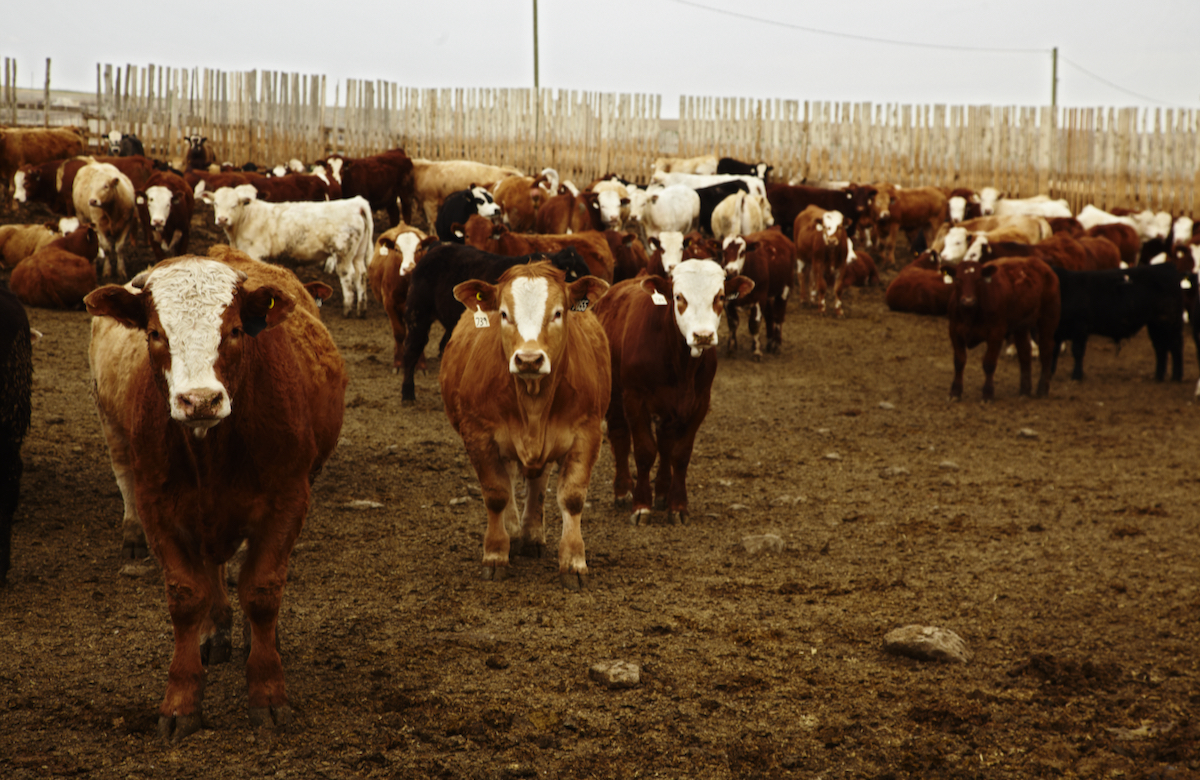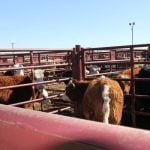(Commodity News Service Canada) — Various efforts are underway in hopes of allowing Canadian beef back into Taiwan, according to an industry representative.
Taiwan, after finding traces of the feed ingredient ractopamine present in eight U.S. beef samples and one from Canada earlier this month, has banned the import of beef shipments.
“There are currently 24 countries worldwide which have authorized the use of ractopamine as a feed additive for hogs and in turn the production of pork,” said Ted Haney, president of the Canadian Beef Export Federation (CBEF).
Read Also

U.S. livestock: Cattle at fresh highs, hogs weaken
Cattle futures on the Chicago Mercantile Exchange climbed to fresh highs on Tuesday, as tight supplies and the ongoing closure…
The ingredient produces a leaner product and allows the animals to be more efficient in converting grain to muscle mass.
Meanwhile, four countries in the world have registered this product in the use of cattle, including the U.S., Canada, Mexico and Australia, he said.
Canada began using ractopamine in 2006, and by 2007 it was in fairly wide use in feedlots across North America, Haney said.
While some countries that have not authorized the use of ractopamine have registered maximum residue levels in testing, the understanding us that this product is safe.
Ordinarily, a new animal health or production product is taken through the Codex Alimentarius Commission, a multi-government organization that addresses standards for food safety such as acceptable levels of additives.
“One of the major functions of the organization is to establish maximum residue levels for these products and for uses in meat,” Haney said.
Ractopamine has been moving through the Codex process for some time, but still has not completed all the necessary testing requirements.
As a result, there is still no multinational government-recognized acceptance and in turn each country has been left on its own to determine procedure, Haney said.
However, he stressed that the World Health Organization recognizes the product is safe.
But because there are no international standards instituted under Codex, countries can act independently, and that appears to be what Taiwan has done, he said.
“Rerouted”
Taiwan started testing for the residue about a month ago and upon finding ractopamine, all beef imports came to a halt.
“The U.S. and Canadian pork industry have experienced trade disruptions in Taiwan, where there has been testing for ractopamine in pork, but up until last month, Taiwan and other countries had not been testing for ractopamine in beef,” he said.
At present very little if any North American beef was being shipped to Taiwan, he said.
“Canadian companies that would normally ship beef to Taiwan have rerouted those sales to alternate destinations,” he said.
A number of Canadian companies saw beef products quarantined in Taiwan, Haney said, and beef in transport was in the process of being returned to Canadian shippers.
CBEF had forecast that Canadian beef product shipments to Taiwan in 2010 would total 3,000 tonnes, which would have been worth $15 million, he said. In 2011, Canadian beef product shipments had been forecast to surpass the 2010 level, he added.
“So until this issue is resolved in Taiwan, there will be very little beef moving from Canada, the U.S., Mexico and Australia, which are the four nations which are using ractopamine as a beef feed ingredient, to Taiwan,” Haney said.
“Running out”
Beef-exporting companies in these countries are not going to the risk of shipping to Taiwan under these circumstances, he said.
“Quite frankly, without these beef imports, Taiwan will not be able to backfill their supplies due to their low domestic beef production capability,” Haney said. “Taiwan, as a result, is running out of beef as we speak.”
Taiwan will either have to adjust its testing program for beef, establish a maximum tolerance residue level for beef or request countries to export beef not produced with the ractopamine ingredient.
Taiwan has been a key international market target for Canada’s beef, but if a resolution to this issue can’t be found, Canada’s focus on developing the beef trade in Taiwan will shift to another of significant strategic importance, he said.
Haney acknowledged there has been a great deal of contact on the subject between government and industry officials to date.
Taiwanese health officials have also indicated the beef produced with ractopamine is safe for human consumption, Haney pointed out. “As a result, this is a regulatory issue with the Taiwanese government, not a health issue.”
No other country has adopted Taiwan’s decision to ban beef, he added.















